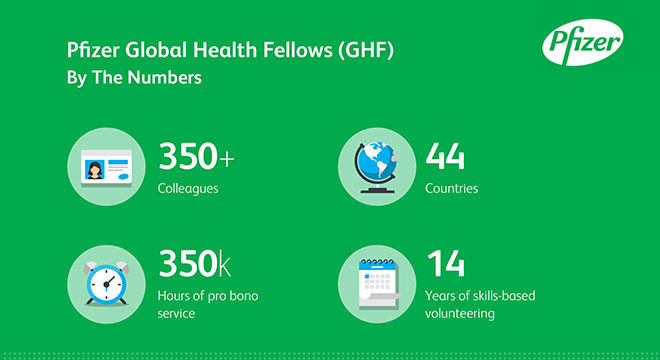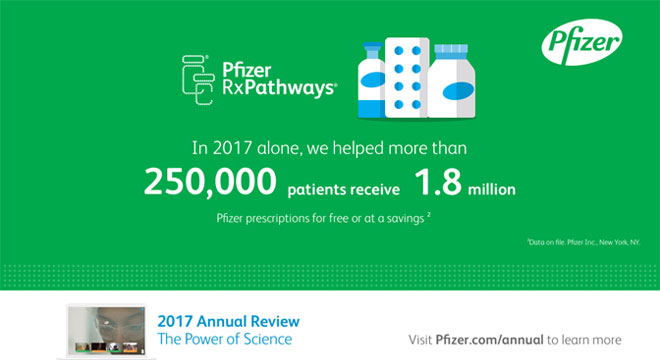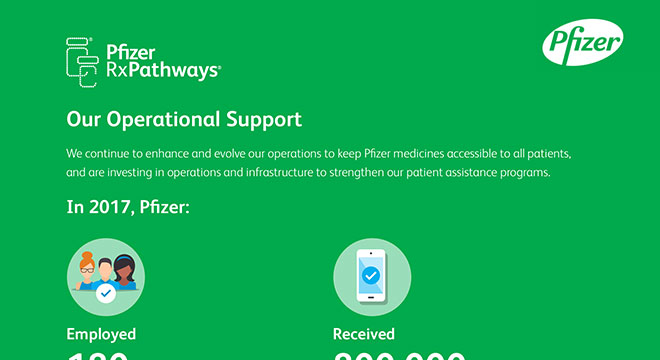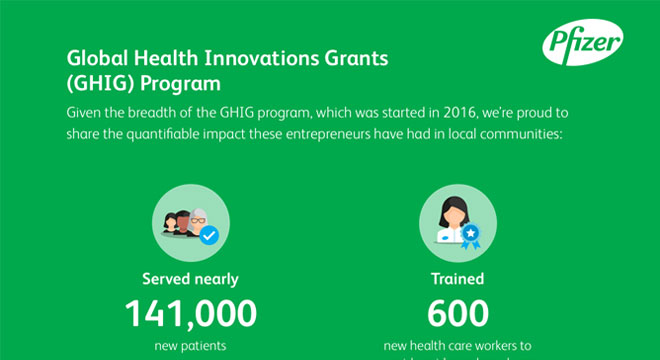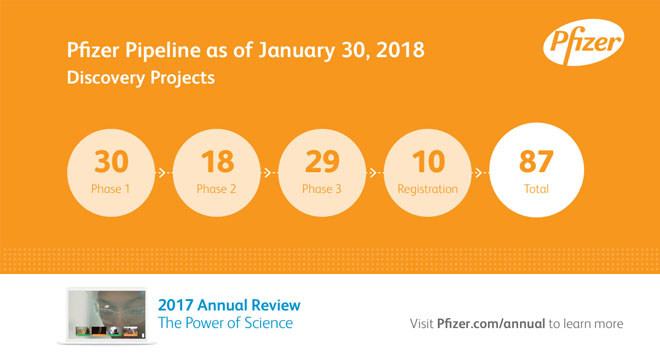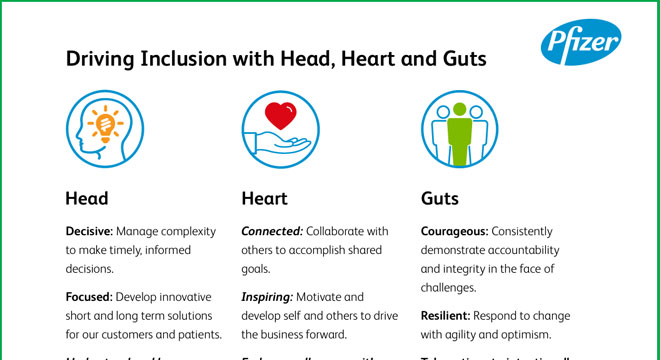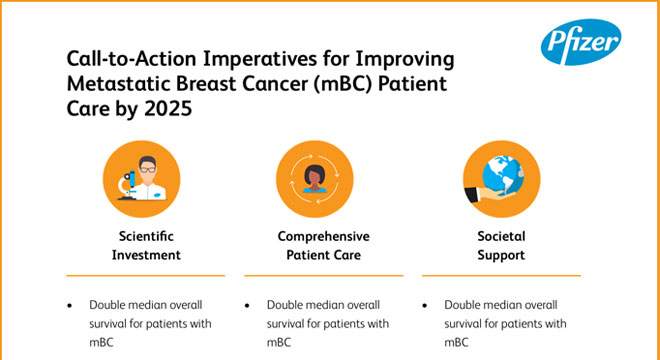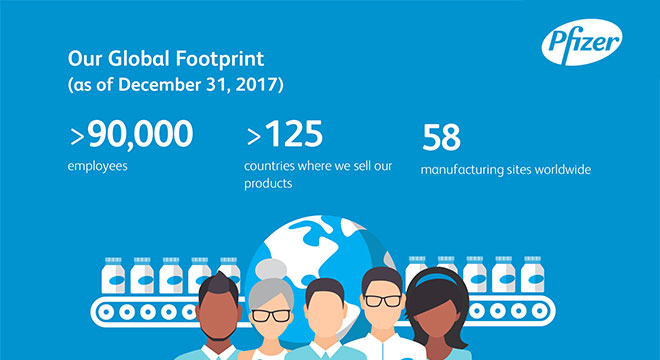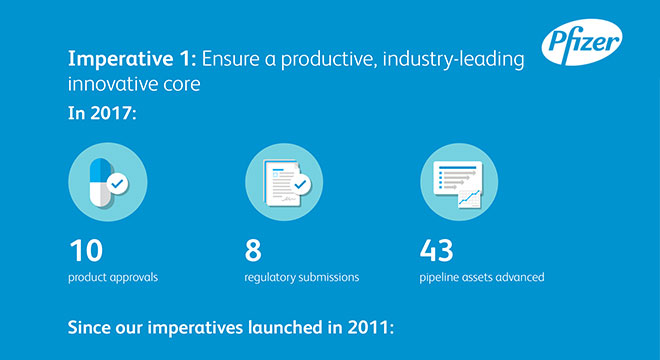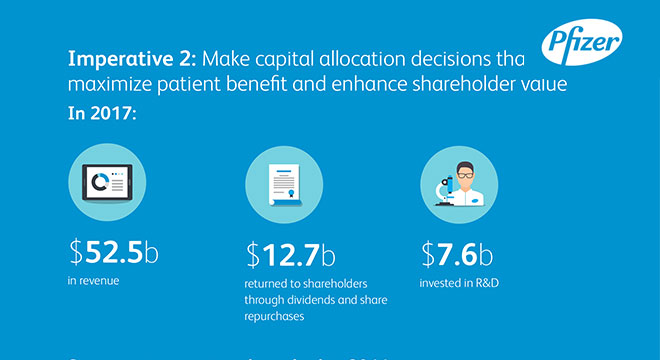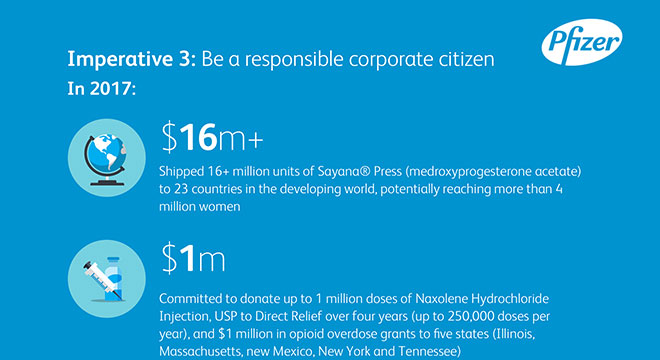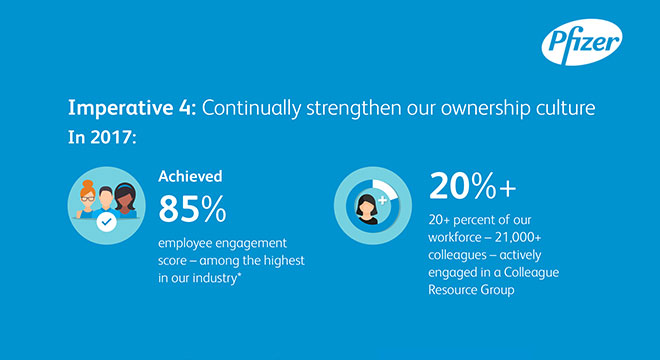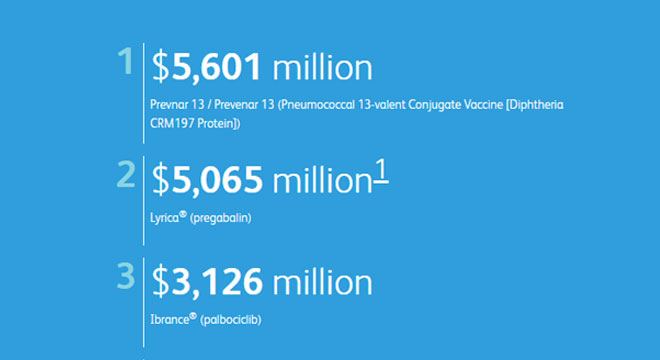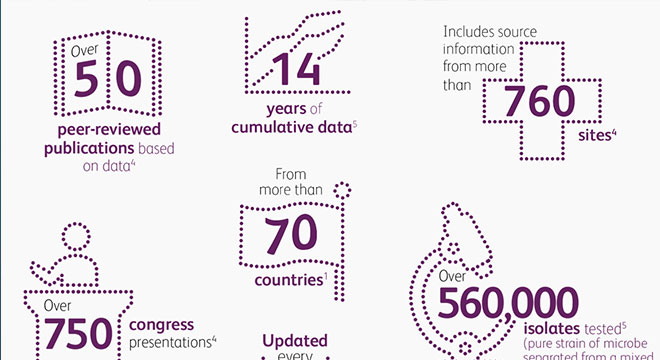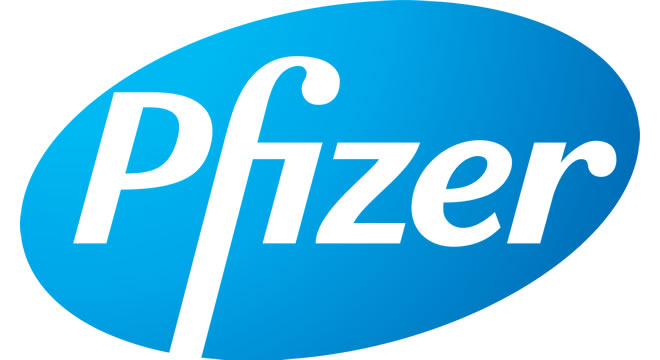Our Innovation
Pipeline
As our understanding of the science and nature of disease evolves, Pfizer strives to address the needs of patients through our extensive portfolio of medicines and vaccines with a keen eye toward the future. Powered by innovative discovery research and development, our scientists take pride in inventing molecules that have the potential to meet patient needs and taking them through rigorous testing and, hopefully, registration and regulatory approval. We have built a broad pipeline of compounds that we believe hold the potential to deliver new, life-changing therapies for a wide range of debilitating and chronic diseases.
Additionally, our research and development teams dedicate their efforts to developing complex sterile injectables, new drug delivery systems, new formulations of existing therapies and expansion into new markets. Our global research pipeline – focused on areas where we believe we can make a significant contribution to patients – has 87 compounds in various stages of development. Approximately 45 percent of the 87 compounds are in Phase 3 trials or registration.
Spotlight on Biosimilars
For the last decade, Pfizer’s biosimilars – high-quality, highly similar versions of reference biologic medicines – have been delivering on the promise of expanding patient treatment options and seeking to improve outcomes for millions of patients with inflammatory diseases, autoimmune diseases and cancer.
Building on our strengths in developing biologics, our biosimilars development pipeline is one of the largest such pipelines globally, with 12 total assets and seven in mid- to late-stage development. Recent milestones include the December U.S. Food and Drug Administration (FDA) approval of Ixifi™ (infliximab-qbtx), also a biosimilar to Remicade® (infliximab), the acceptance for review of applications by the FDA and European Medicines Agency (EMA) for PF-05280014, our proposed biosimilar to Herceptin® (trastuzumab), and acceptance for review of our application by the FDA of PF-06881893, our proposed biosimilar to Neupogen® (filgrastim).
Spotlight on Immunology & Inflammation (I&I)
Pfizer infuses the power of scientific innovation into our Inflammation & Immunology research and development efforts. We are working to transform the evolving treatment paradigm in inflammation beyond broad immunosuppression. In the clinic, we are targeting more selective inhibition of pro-inflammatory pathways to deliver potentially transformational outcomes for patients.
We have established leading kinase capabilities with multiple kinase inhibitor therapies in development. As a pioneer in Janus kinase (JAK) science, we’re advancing several investigational programs with novel selectivity profiles, which, if successful, could potentially deliver transformative therapies for patients with rheumatoid arthritis, psoriasis, ulcerative colitis and alopecia areata.
Spotlight on Rare Disease
The science that powers Pfizer’s work in rare disease combines a deep understanding of disease biology, pioneering clinical research and ongoing dialogue with patients, who are steadfast partners in our work to translate science into medicine. Our goal is to develop effective therapies for rare diseases where there is the greatest treatment need and where we have unique, differentiated capabilities to bring potentially transformative options to patients. This includes the areas of hemophilia, sickle cell disease, amyloidosis, neuromuscular and inherited metabolic disorders.
We currently have more than 20 compounds in various stages of development in our rare disease pipeline (spanning 12 potential indications), and most have received Orphan Drug designation in the U.S. and EU. We have late-stage pipeline opportunities in transthyretin amyloidosis and sickle cell disease and we are investigating highly specialized, potential one-time gene therapy treatments for diseases that have single gene defects, such as certain neuromuscular and hematologic diseases.
Explore our science in action

























